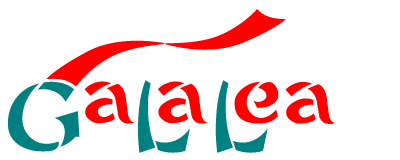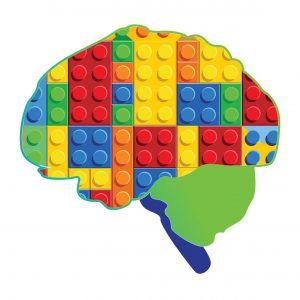Sometimes I even get requests for German classes from other nationalities that speak neither English nor Japanese as their native language. Of course they at least speak English well enough for us to speak to each other. One of these was a Greek who spoke English fairly well, but needed to learn German to quite a high level in order to work in Germany. I have to admit, that I don't speak much Greek - except for a few idioms you would find on the napkins at Greek restaurants. That level is not enough to determine just how modern Greek works. So I was very grateful to be able to speak to him in English to start with.
Decoding into English for a Native Speaker of Greek
With time, he spoke more and more German. So I thought we were getting ahead well. However, when he kept asking for the same words over and over again and never seemed to remember the articele that comes with the nouns, I got suspicious. There seemed to be a hidden obstacle to a Greek learning German via deconding in English.
One day I was thinking once more about the linguistic typology of languages in a different context. Most of the european languages belong to the group of indo-germanic languages and therefore they conjugate the verbs. English, however, is an exception! There is hardly any conjugation of verbs left, so that it is much closer to Chinese in it's grammatical structure. And Chinese is a prominent example of an isolating language - that is, words are not modified by change of letters or adding syllables to signal grammatical features.
Conjugation is important in German
Of course German is a properly conjugating language. So now I needed to know how modern Greek works. Therefore I bought a small guide to modern Greek. Browsing through that booklet I soon discovered that modern Greek conjugates just as much as German. There are also male, female and neuter nouns and it even has the same four "cases" as German. For those of you, wondering what a "case" might be: In German there is a difference whether "the man" is the actor (he) or the object (him) of a sentence - and we have two words to translate "him" depending whether it is simply "him" or "to him" in English. This illustrates nicely how German and Greek are much more similar in grammar compared to English.
So now I clearly understood why English was not suitable at all as a bridging language. So together we started to translate the German articles into Greek articles and put them into the bottom line of the decoded material. As I was running into trouble with the Greek letters, I decided to have him change this into Greek writing then as part of his homework.
Gender of nouns
Another difficulty was the fact, that not every noun, that was male in German, was also male in Greek. And the same goes for female or neuter nouns, too. So the student needed some guidance in how to remember the grammatical gender of the nouns. At Gateway to Language Learning we do this via colours and strict decoding. So if a German noun is male, every article was also to be reflected as male and in the correct "case" for German in the Greek/English decoded line, even if the word would be female or neuter in Greek. As this Greek/English mixture looked so strange, we added more and more nouns in Greek, too. And the more words were translated into Greek, reflecting the similarities and differences between our languages, the clearer things got for the student.
Studying Vokabulary via English
The third difficulty was encountered in trying to study the vocabulary via the translation into English. That only worked well with those words in English and German, that were derived from Latin or ancient Greek. However, both German and English use a lot of words of germanic origin in every day language which are not even found in Romance languages. In such a case there is no bridge to a similar word in Greek. If you have been following this blog for a time, you might also recall, that at Gateway to Language Learning vocabulary is not to be studies by memorizing lists of words, which could have had three columns in this case (German - English - Greek).
By the way, for native speakers of Japanese or Chinese English might not be ideal as a bridge language. However, with proper guidance to all of the grammatical features that cannot be reflected in English, it can actually be helpful, as both languages do share a fair amount of germanic vocabulary. It would then be absolutely necessary to find a way to make visible all those German grammatical structures that are lacking in English and their native languages, too (gendered articles, conjugation of verbs etc.).
Let me state on the side, that textbook for modern Japanese we used at university in the 1980s was an English textbook. To me this was no problem as I had grown up bilingual. As we were reading the texts and translating into German anyway, this didn't seem to be a problem for anyone else either.
A Student's Native Language is important!
Since that experience with the Greek student I have always been preparing myself by doing some research on the student's native language. That way I have looked at Pashto, Slowenian and even Bengali. Of course my knowledge is limited to the theoretical part. However, this is very useful in detecting why these native speakers are prone to make certain mistakes when learning German. I would not need to excplain the four cases to a Slowenian, because his native language even has seven cases. This person on the other hand would have to learn, that some of the cases he is used to have been merged. A Pashto-speaker, however, doesn't know more than two cases, so he needs more information to understand the German system. And a Japanese or Chinese has no understanding of this concept whatsoever. So he would need to learn these structures from scratch.
For that reason, it is the goal of Gateway to Language Learning to provide material for learning German for many different native speakers. That is, the decoding needs to be in the main languages of the world. As we have seen above, English does not work for everyone - possibly for native speakers of non-indo-germanic languages and of course for English native speakers. Even with Indians I would always incorporate their native languages such as Hindi or Bengali besides using English, as they are indo-germanc languages with quite different grammatical structures from English.










